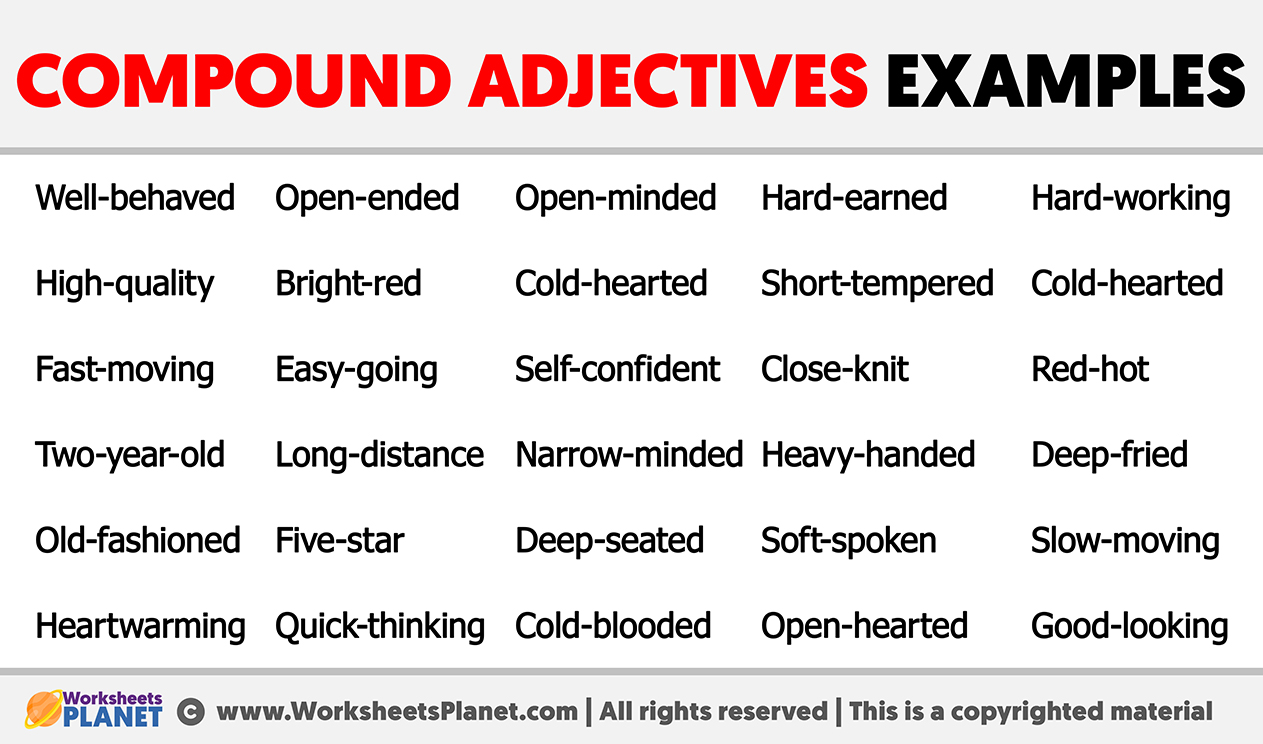A compound adjective is formed by combining two or more words to describe a noun. These adjectives work together to convey a specific attribute or characteristic, often adding precision to descriptions.

A compound adjective is formed by combining two or more words to describe a noun. These adjectives work together to convey a specific attribute or characteristic, often adding precision to descriptions.
